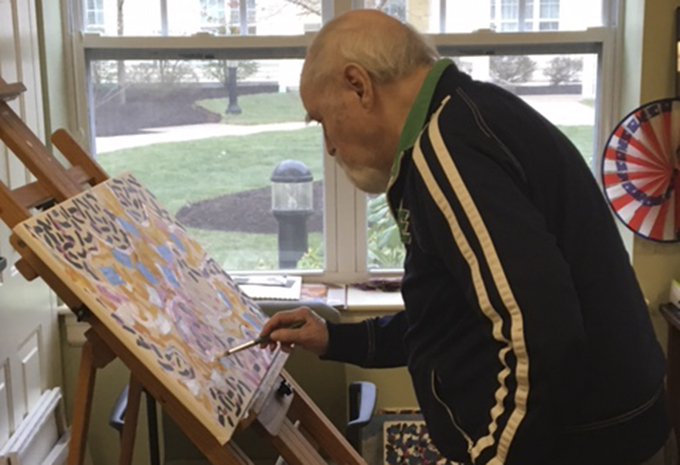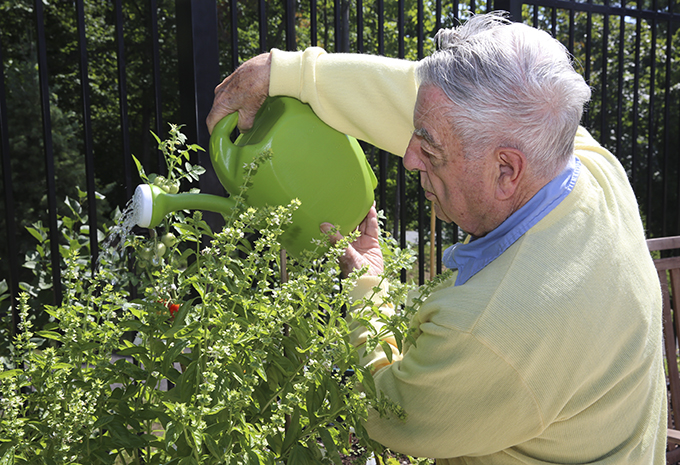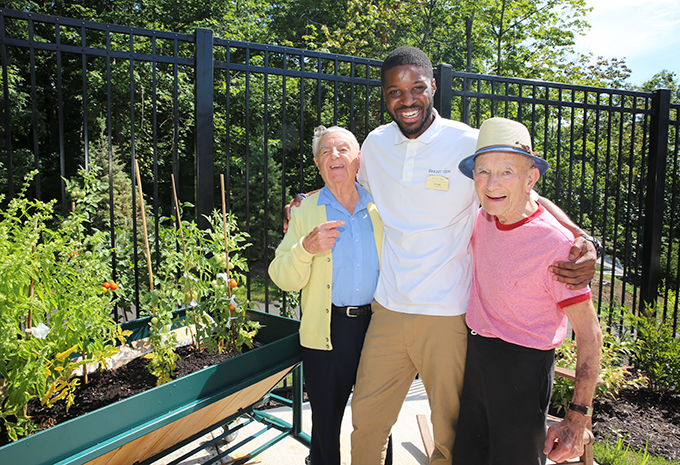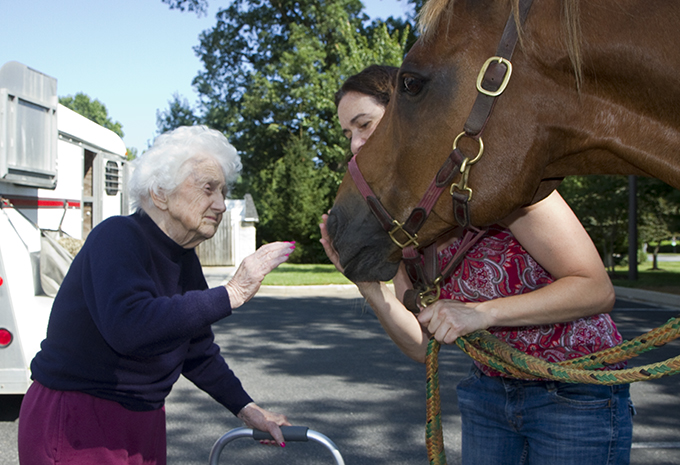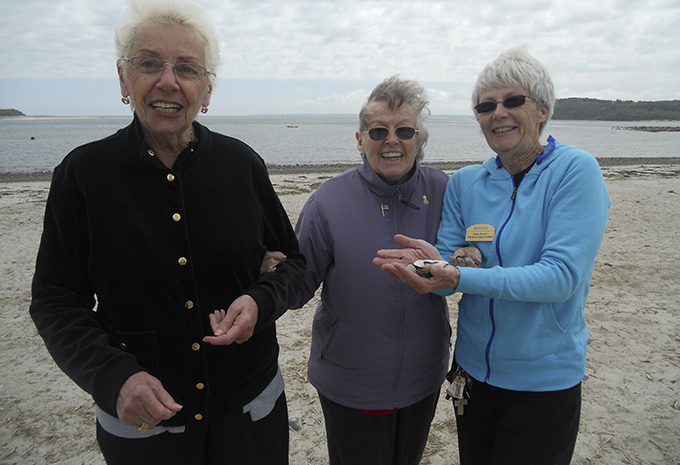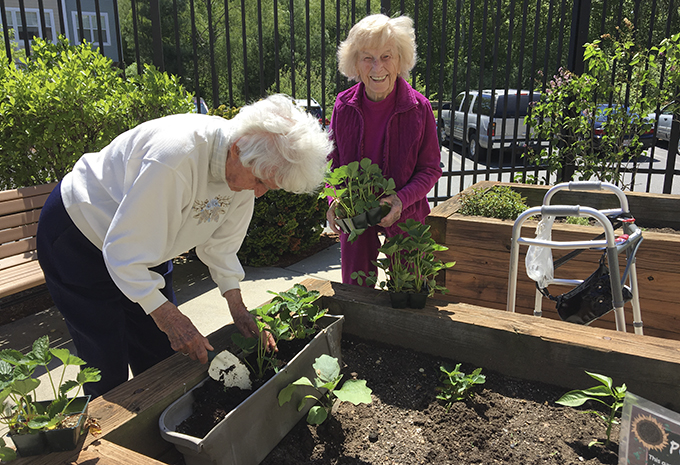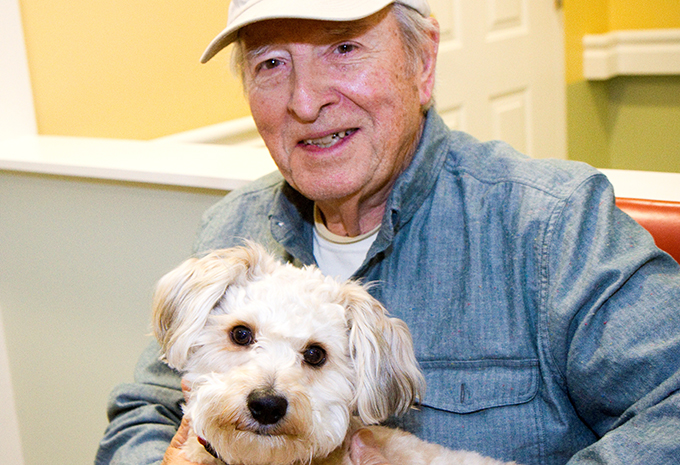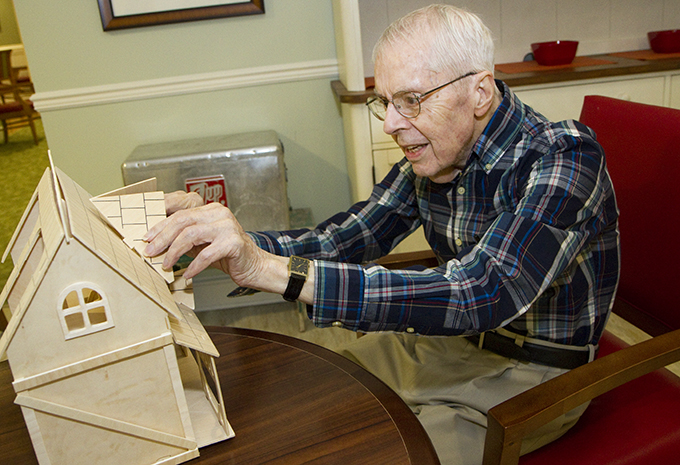A dementia diagnosis within a marriage or long-term romantic relationship will redefine how spouses or partners communicate, grow, and work through life together. We talked with Cole Smith, Corporate Director of Dementia Care for Brightview Senior Living, for more understanding about the changes a dementia diagnosis brings and actionable steps for keeping your relationship meaningful.
Q: How can I still create beautiful memories with my spouse even as their dementia progresses?
A: This can feel overwhelming to navigate: how do I take on the role of caregiver and still maintain my spousal relationship? First, it’s essential to ask for help as your loved one’s dementia progresses. Although asking for help can be hard, you can’t carry the burden alone.
Secondly, make time for activities that you’ve always done together. It takes advanced planning, but you can still create enjoyable opportunities for your loved one. The key is to set the stage in a way that maximizes their independence and minimizes their limitations. Making the experience manageable for your loved one will lead to less frustration and more enjoyment.
For example, if your loved one has always loved fishing, you can still recreate that experience. Fishing from the shoreline may be safer than a boat or a small pier. You could also bait the hooks for your partner. If fishing itself presents too many challenges, organize a picnic by your loved one’s favorite fishing spot. In any situation, try to anticipate any care challenges and always pack an extra set of clothes.
The key is to meet your loved one where they are. Understand your loved one may not want to participate in the event you planned. Although it can be disappointing, try managing your emotions and adjusting your expectations. Let your loved one lead the way.
Q: How can I develop new ways to communicate with my loved one as their speech and cognitive abilities decline?
A: Communication abilities change as someone progresses through a diagnosis of dementia—and language is profoundly affected by these changes. Your loved one’s ability to communicate using words, understand language, and understand written words can all be affected. The most important thing to remember is that the part of our brain that stays intact until the end stage of Alzheimer’s disease and related dementias is the amygdala. This part of the brain processes, perceives, and expresses emotions. Our words become less important, and our nonverbal communication skills become most important.
As your loved one struggles with verbal communication, be patient when engaged in conversation. Ask simple, open-ended questions. Give them time to process the question and respond. You may also start the conversation with a compliment to set them at ease.
Also, connecting to your loved one’s emotional state becomes more important than ever. Author and psychiatrist Dr. Daniel Siegel coined the phrase “name it to tame it,” meaning we must name the emotion we feel before we can work through it. Our loved ones living with dementia may have difficulty verbalizing their feelings, so it can relieve their frustration if we help name their emotions aloud.
Engaging our loved ones in sensory experiences will help us read their emotions and expressions better. Giving your partner a hand massage with scented lotion while listening to music is an excellent way to engage multiple senses.
Lastly, our loved ones can mirror how we are feeling. Try to approach your interactions with your loved one with a calm, relaxed presence. If your frustrations are growing during an exchange, take a step back to calm yourself. It’s hard to step out of your feelings in those moments, so practice how you will react in difficult situations.
Q: How can my loved one and I still have intimacy in our relationship, despite the changes that follow a dementia diagnosis?
A: First, as your loved one’s disease progresses, their ability to consent to a physical relationship may change over time. Talk to your doctor if you have questions or concerns about your loved one’s capacity to consent. Here is another helpful resource about physical relationships and dementia.
However, there are many forms of non-sexual intimacy, giving us limitless opportunities to connect deeply with our loved ones. Touch is so important in any relationship, and throughout the day, we may only be touching our loved one in a caretaking capacity (i.e., dressing them, bathing). We can have more intention and love behind our touch during caretaking. Also, massages, sitting and holding hands, and dancing to music are all great examples of intimate touch. Baking together or enjoying a candlelit dinner are other simple ways to connect with your loved one outside your caregiving role.
Q: My spouse lives with dementia in a memory care community and has found a new partner. I understand but still feel upset sometimes. How can I best work through these feelings?
A: There is no right way to react to this situation. Whether your spouse’s new relationship brings you relief, happiness, sadness, or some other feeling, all feelings are valid.
I highly recommend finding a dementia support network if you haven’t already. Whether you attend a group in-person or have an online network to connect with, you can meet other caretakers working through the same experiences.
Q: My loved one often displays lewd, sexual behavior that can make family and caregivers feel uncomfortable. What are some ways to best handle that behavior?
A: First, we never scold or shame our loved one. We escort them to a private place and manage our reactions to the situation. Remember, sex is a basic need – what makes it inappropriate is the place or ability to consent.
What’s most important to remember is our loved ones living with dementia lose their ability to communicate their unmet needs in traditional ways. When they can’t communicate well, they use their behavior as their voice.
Sexual behaviors don’t necessarily mean that our loved one needs sex – they might be craving intimacy or touch. We all crave touch and closeness, and our loved one might have difficulty asking to hug or hold hands. Your loved one could also be bored. Being proactive with activities meant to build intimacy and engagement can go a long way to keep these behaviors at bay. Also, look for environmental triggers in your loved one’s space. Even sexually charged television shows, like soap operas, can intensify your partner’s behavior.
Q: Any final advice?
A: Any spouse, partner, or loved one of someone living with dementia needs their own support network. Filling your cup so you can be a good spouse becomes even more important as your loved one’s needs change. Don’t isolate yourself, and don’t be afraid to ask for help.
Brightview Senior Living builds, owns, and operates award-winning vibrant senior living communities in eight states along the East Coast: Connecticut, Maryland, Massachusetts, New Jersey, New York, Pennsylvania, Rhode Island, and Virginia. We offer senior Independent Living, Assisted Living, Enhanced Care, and Wellspring Village™, a specialized neighborhood for people living with Alzheimer's disease and other forms of dementia. Schedule a personal visit to experience our communities firsthand.


